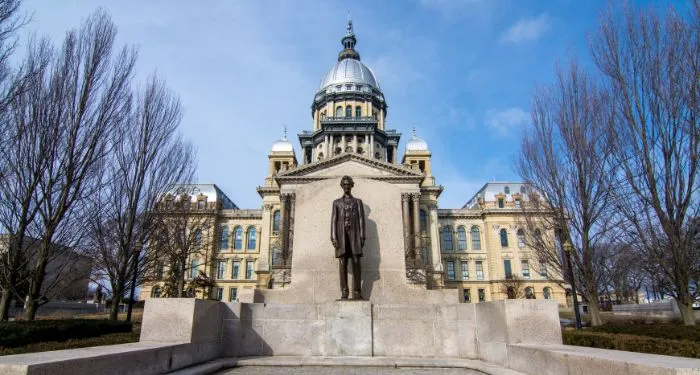
Illinois Proposes First Anti-Book Ban Legislation
In his State of the State address last month, Illinois Governor J.B. Pritzker addressed book bans head on. Now, thanks to Illinois Secretary of State Alexi Giannoulias, House Bill 2789–the Right to Read Bill–has passed through committee and will make its way to the full House for consideration.
HB 2789 would tie state funding of public libraries and public school libraries to policies that explicitly prevent book banning and restricting access to books and other materials. Each library would need to outline their commitment to intellectual freedom. As the bill and its amendment read:
Synopsis As Introduced
Amends the Illinois Library System Act. Provides that it is the policy of the State to encourage the improvement of free public libraries and to encourage cooperation among all types of libraries in promoting the sharing of library resources, including digital resources, and to encourage and protect the freedom of public libraries and library systems to acquire materials without external limitation and to be protected against attempts to ban, remove, or otherwise restrict access to books or other materials. Provides that the State Librarian shall prescribe rules concerning the development of a written policy declaring the inherent authority of the public library or library system to prohibit the practice of banning specific books or resources. Provides that, in order to be eligible for State grants, a public library or library system shall develop a written policy prohibiting the practice of banning books within the public library or library system. Makes other changes.House Committee Amendment No. 1
Replaces everything after the enacting clause. Reinserts the provisions of the introduced bill with the following changes: changes references to “public library or library system” to “library or library system”; provides that an alternative to the development of a written statement (rather than policy) prohibiting the practice of banning books is to adopt the American Library Association’s Library Bill of Rights that indicates materials should not be proscribed or removed because of partisan or doctrinal disapproval; and provides that the written statement shall declare that an adequate collection (rather than stock) of books and other materials is needed in a sufficient size and varied in kind and subject matter to satisfy the library needs of the people of the State. Makes conforming changes.
If passed, Illinois will be the first state in the nation to ensure intellectual freedom for all across the state. The bill is enthusiastically supported by the Illinois Library Association, the Association of Illinois School Librarians, the Illinois Federation of Teachers, and NAACP-Springfield.
HB 2789 moving to the whole House means that those who live in Illinois should contact their representatives in support of the bill. You can find your House representative, as well as you Senate representatives, here.
For those who don’t live in Illinois, HB 2789 offers an opportunity to present state legislatures language and policy around intellectual freedom. The movement to end book bans will not end until more politicians make it a priority, and given how states like Texas, Florida, and Oklahoma have made book bans, book ratings, and intellectual suppression top priorities, there is no excuse why other states cannot step up and respond.
While it might seem odd that the Secretary of State would push for anti-book ban legislation, in Illinois, Giannoulias’s responsibilities include literacy efforts. He is the State Librarian, overlooking all State Library services. Giannoulias took office in January this year after Jesse White declined to run again (White had been the longest serving American to hold the office).
Illinois has not been immune from book bans. Several large cities and suburbs, as well as smaller communities, have seen battles over books like Gender Queer, Between The World and Me, and others; in some cases, like Barrington and Downers Grove, the books were retained. In other cases, such as those in Rockford and Machesney Park, the books were banned. Several book banning groups have worked to remove books across the state, and in the lead up to the April 4 municipal elections, right-wing “parental rights” activists have made book banning among their priorities in their bids for school and library board seats.
This landmark bill saw three nay votes in committee, and all three came from white male republican representatives, Brad Halbrook, Michael J. Coffey Jr., and Wayne A. Rosenthal.
“Unfortunately, a scourge of censorship is polarizing and disrupting communities throughout our country,” said Giannoulias in a statement announcing the legislation. “It is also threatened the safety of our amazingly dedicated librarians, the likes of which they have never seen before.”
He added, “These efforts to ban reading materials have nothing to do with books. They are about restricting the freedom of ideas that certain individuals disagree with and believe that no one else should think or having access to”











